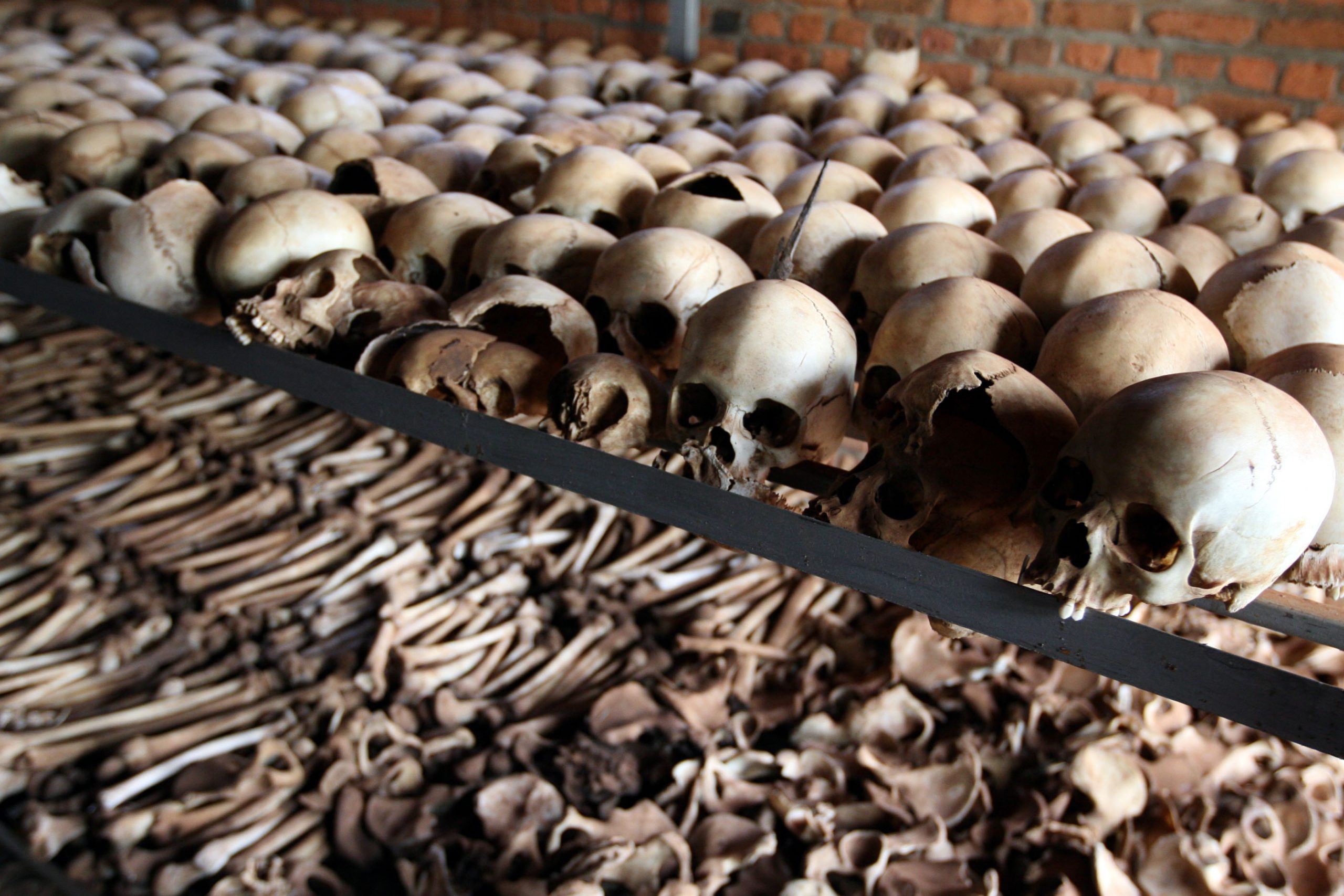Regional
Genocide: When will 'Never Again' be a reality?

While talking to the local
media houses RadioTV10 and Royal FM, on April 7, in Kigali, Rwandan President
Paul Kagame noted that a genocide tends to occur in the region every 30 years.
President Kagame pointed at
the pogroms targeting the Tutsi in the 1960s, the 1994 Genocide against the
Tutsi, and the persecutions and massacres currently targeting Congolese Tutsi
in the east of the Democratic Republic of Congo (DRC).
Today’s situation in eastern
DRC indicates that the world has not learnt anything from the past, especially
the 1994 Genocide against the Tutsi in Rwanda. The frequent or recurrent
ethnically motivated violence against Congolese Tutsi, does not give hope of
'Never Again'.
In April 1994, Rwanda
experienced one of the most tragic genocides in the world; the 1994 Genocide
against the Tutsi, which claimed more than one million lives.
As Rwanda commemorates the
1994 Genocide against the Tutsi, it warns the world not to ignore current
situation in eastern DRC where risk factors of genocide such as ethnic
violence, mass killings and property destruction - all attacks against
civilians along ethnic lines - have manifested, and continue, unabated.
The persecution of the
Congolese Tutsi has been promoted by President Félix Tshisekedi’s
administration. The Congolese Tutsi have especially suffered from ethnic
discrimination, hate speech, lynching, cannibalism, and endless torture, with
some being buried alive.
The ethnic cleansing project
is publicly fanned by high ranking government and security officials as well as
government sponsored militia like the Wazalendo.
“The Genocide was perpetrated
30 years ago. But there are things in the region similar to what happened in
Rwanda. When you look at the current situation in eastern DRC, there are still
people being killed and more than 100,000 (people) who fled to Rwanda because
they are being persecuted because they are Tutsi," President Kagame said.
The genocide against the Tutsi
was carried out 30 years ago. But the after-effects are still felt beyond the
borders in the sub-region, especially the situation currently prevailing in
eastern DRC where there are still people who are persecuted simply because they
are Tutsi.
All this happens as the
international community watches but it has turned a blind eye. If the world is
still experiencing ethnically motivated violence, when will 'Never Again' be a
reality?
The world should learn from
the past and, act accordingly. Like
Alice Wairimu Nderitu, the UN Special Advisor on the Prevention of Genocide,
has said several times in the recent past, the failure to promptly respond to
warning signs allows genocides to happen.
Following her official visit
to DRC from November 10-13, 2022, the UN Special Adviser on the Prevention of
Genocide was deeply alarmed about the escalation of violence in the Great Lakes
Region where a genocide - the 1994 Genocide against the Tutsi in Rwanda –
happened.
“The current violence is
a warning sign of societal fragility and proof of the enduring presence of the
conditions that allowed large-scale hatred and violence to erupt into a
genocide in the past,” she said.
Her visit followed a
technical-level mission by her Office that established that indicators and
triggers contained in the UN Framework of Analysis for Atrocity
Crimes were present in DRC including; dissemination of hate speech and
absence of independent mechanisms to address it; politicization of identity;
proliferation of local militias and other armed groups across the country;
widespread and systematic attacks, including sexual violence, against
especially the Banyamulenge on the basis of their ethnicity and perceived
allegiance with neighboring countries; and intergroup tensions.
In eastern DRC, the current
violence mainly stems from the refugee crisis that resulted as many
individuals involved in the 1994 Genocide against the Tutsi in Rwanda fled to
eastern DRC, forming armed groups such as FDLR, a group formed by remnants of
the masterminds of the 1994 genocide against the Tutsi in Rwanda, which is
still active in eastern DRC, the Special Adviser said.
In response to the presence of
this armed group, new armed groups were formed and the failure to bring
non-state armed actors to book is the consequence we now see, she added.
The Special Adviser noted that
finding a solution to the ongoing conflict in Eastern DRC would require
addressing the underlying causes of the violence and learning lessons from the
past.
“The abuses currently
occurring in eastern DRC, including the targeting of civilians based on their
ethnicity or perceived affiliation to the warring parties must be halted. Our
collective commitment not to forget past atrocities constitutes an obligation
to prevent re-occurrence,” the Special Adviser stressed.






.jpeg-20230411051445000000.jpeg)

